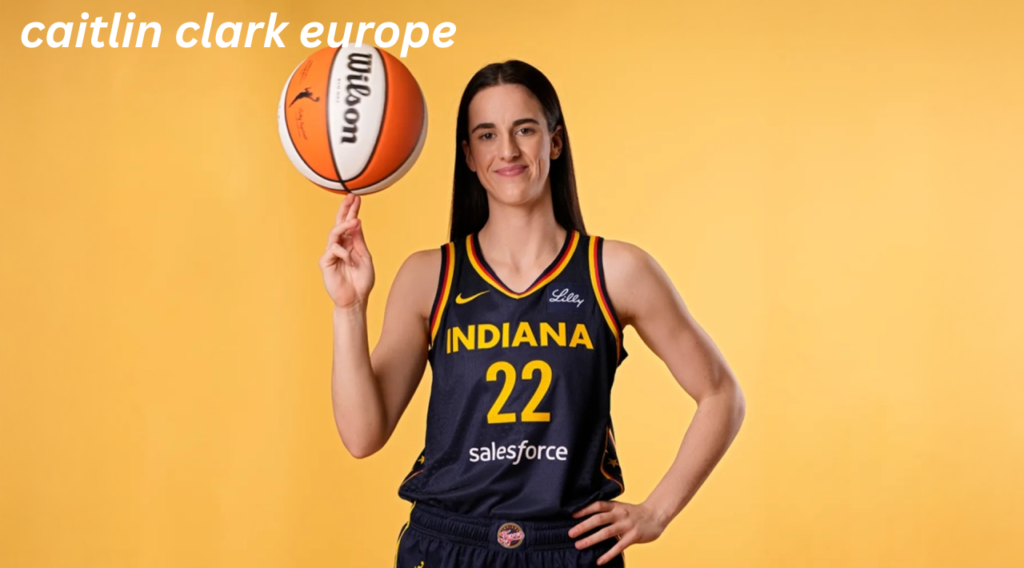Caitlin Clark Europe Rising Star s Impact Beyond the WNBA
Caitlin Clark has quickly become one of the most recognizable names in modern basketball. Known for her deep shooting caitlin clark europe court vision, and fierce competitive drive, Clark captivated fans during her NCAA career at the University of Iowa. As she transitions into professional basketball, discussions are heating up not only about her WNBA debut but also about a possible stint in Europe. For many athletes, playing overseas is more than a detour—it’s an opportunity to expand their skills, increase their marketability, and leave a global imprint on the sport.
European basketball has long served as a competitive and lucrative option for American players, particularly in the women’s game. For someone of Caitlin Clark’s stature, the decision to engage with European leagues would reflect a calculated step to broaden her influence and gain exposure to diverse styles of play. Whether she’s already considering an international experience or simply piquing global interest, the prospect of Caitlin Clark playing in Europe has stirred conversations among fans, scouts, and sports media around the world.
This article explores Clark’s journey so far, the dynamics of European basketball, and the profound impact she could have if she steps onto the court overseas. More than a hypothetical, Caitlin Clark in Europe represents a powerful convergence of talent, opportunity, and the globalization of women’s basketball.
Caitlin Clark: A Phenomenon in American Basketball

Before any conversation about Caitlin Clark’s potential in Europe, it’s essential to understand what makes her so extraordinary. As a college athlete, she consistently defied expectations, shattering records and redefining what it means to be a playmaker. Her ability to shoot from well beyond the arc, often drawing comparisons to Stephen Curry, made her a household name. Beyond scoring, her high basketball IQ and leadership on the court made her a cornerstone of the Iowa Hawkeyes women’s basketball program.
Clark’s college stats tell a story of dominance. She led the NCAA in points and assists multiple seasons, elevating not only her own game but also the profile of women’s college basketball as a whole. With each nationally televised game, she drew more attention to the sport, helping increase ratings and bringing in a wave of new fans. Her electrifying performances in the NCAA tournament, especially during March Madness, cemented her as a generational talent.
It’s also worth noting that Clark’s off-court presence has grown in tandem with her on-court success. Through endorsements, social media engagement, and brand partnerships, she has built a following that goes well beyond basketball. This unique blend of athletic excellence and marketability makes her an appealing figure not just to WNBA franchises, but to European teams looking to increase their own visibility.
Why Europe? Understanding the Shift
Historically, many elite American women’s basketball players have opted to play overseas during the WNBA offseason—or even instead of it. The reasons vary, but often include higher paychecks, more playing time, and international exposure. For Caitlin Clark, Europe presents a stage where she can continue refining her skills while reaching new audiences. European leagues often run in the fall and winter months, complementing the WNBA season, making them an attractive year-round option for ambitious athletes.
The financial draw is especially relevant. Some European clubs, particularly in countries like Turkey, Russia, and Spain, offer salaries that rival or exceed those in the WNBA. Endorsement opportunities can also expand internationally, especially for a player of Clark’s caliber. Additionally, playing in Europe allows athletes to experience different coaching styles, face international competition, and grow both personally and professionally.
From a developmental standpoint, playing in Europe can offer fresh challenges. Teams in EuroLeague Women, for instance, bring a blend of tactical play, seasoned veterans, and emerging international talent. For Clark, this could translate into a deeper understanding of the game and adaptability under various basketball philosophies. It’s not merely about money or fame—it’s about evolution as a global athlete.
European Leagues and Teams Interested in Caitlin Clark
Should Caitlin Clark pursue Europe, she will have no shortage of suitors. Europe is home to some of the most competitive and respected women’s basketball leagues in the world. The EuroLeague Women, in particular, features top-tier clubs from Turkey, Spain, France, and Russia—teams that frequently attract elite talent from the U.S. and abroad.
Clubs like Fenerbahçe (Turkey), UMMC Ekaterinburg (Russia), and Avenida (Spain) have a history of recruiting star players and paying top dollar for their services. These teams are not only competitive but also operate in large, basketball-loving markets. With Caitlin Clark’s global appeal, her addition would undoubtedly draw in new fans, boost ticket sales, and elevate the media attention surrounding any club lucky enough to land her.
The Spanish Liga Femenina and the French Ligue Féminine de Basketball are also strong contenders. These leagues offer high-level competition and increasingly modern facilities. Playing in such environments could give Clark valuable experience in international playstyles, such as the emphasis on passing and half-court execution often seen in European systems.
Rumors and speculations are already buzzing about which teams may make a move for her. While nothing is confirmed, it’s clear that Europe’s top clubs recognize the value that Caitlin Clark could bring—not just as a player, but as a transformational figure in global women’s sports.
The Potential Impact of Caitlin Clark Playing in Europe
If Caitlin Clark were to play in Europe, the ripple effects would be substantial. First, her presence would significantly boost the profile of European women’s basketball. As a household name in the United States, her participation could attract new viewers from North America to European leagues, driving media rights deals, social media engagement, and cross-continental fan interaction.
Additionally, Clark would serve as an inspirational figure to aspiring athletes in Europe. Her style of play—creative, fearless, and dynamic—would be a model for young players who dream of reaching professional heights. Basketball clinics, promotional tours, and grassroots events featuring her would ignite enthusiasm across youth programs and sports academies.
From a business perspective, her move could open the floodgates for more high-profile U.S. players to consider full-time careers in Europe. Sponsorships, merchandise, and live-streaming deals could follow, making European teams more globally competitive in brand value and reach. Simply put, Caitlin Clark’s overseas presence could act as a catalyst for globalization in women’s basketball, encouraging tighter collaborations between leagues and expanding the sport’s cultural footprint.
Challenges and Adjustments Abroad
Despite the many benefits, moving abroad is not without challenges. American athletes often encounter language barriers, unfamiliar social customs, and cultural adjustments that require resilience. Caitlin Clark, as a young player making such a leap early in her career, would need to adapt quickly both on and off the court.
The basketball experience itself is different in Europe. Training schedules, coaching styles, and even the game’s pace vary from what she’s used to in American systems. Coaches in Europe tend to emphasize team play and disciplined execution over individual flair. While Clark is certainly a team-oriented player, adjusting to less freedom and a more rigid system could initially test her adaptability.
Additionally, life outside basketball—housing, travel, and being away from friends and family—can be mentally taxing. However, athletes who succeed in these conditions often develop greater independence, mental toughness, and global awareness. Caitlin Clark’s fierce work ethic and composure under pressure suggest that she would meet these challenges head-on.
What This Means for Her Career and Global Legacy
For Caitlin Clark, a European chapter could mark the beginning of a truly global legacy. It would demonstrate her versatility, ambition, and commitment to becoming one of the best—not just in the U.S., but in the world. If she thrives internationally, it would set a powerful example for future players who aspire to expand their careers beyond borders.
Such a move would also make her an even more attractive figure for international endorsements and partnerships. Brands love athletes who can speak to multiple markets, and Caitlin Clark’s charisma and global appeal position her perfectly for cross-cultural influence.
From a legacy standpoint, she could be remembered not only as one of the greatest American collegiate players but also as a pioneer who helped bridge the Atlantic in women’s basketball. The possibilities are vast, and each one contributes to building a career that transcends traditional boundaries.
Conclusion
Caitlin Clark’s basketball journey is already legendary, but her story is far from over. Whether or not she takes her talents to Europe, the discussion alone highlights the growing international interest in her career. Her presence overseas would not only elevate the profile of European leagues but also reshape how we view the globalization of women’s sports.
In a world where borders are becoming less relevant in sports, Caitlin Clark symbolizes the next generation of truly international athletes. Should she decide to play in Europe, it would mark a bold and strategic step—one that could redefine her career and influence the game for years to come.
FAQs
Q1: Is Caitlin Clark officially playing in Europe?
As of now, there is no official confirmation, but discussions and speculation continue regarding her potential interest in European leagues.
Q2: Which European basketball teams have shown interest in Caitlin Clark?
While no formal announcements have been made, elite teams like Fenerbahçe, Avenida, and UMMC Ekaterinburg are among those rumored to be interested.
Q3: Why would Caitlin Clark choose to play in Europe over the WNBA?
European leagues often offer higher salaries, more playing time, and international exposure, making them an appealing option for top-tier talent.
Q4: How do European women’s basketball leagues compare to the WNBA?
They are highly competitive, with strong tactical play and passionate fanbases, though generally less media exposure than the WNBA.
Q5: What challenges might Caitlin Clark face playing abroad?
Cultural adaptation, language barriers, and differences in coaching philosophy are common challenges for American athletes overseas.
You May Also Read: https://networkinfonews.com/pedro-vaz-paulo/














Post Comment